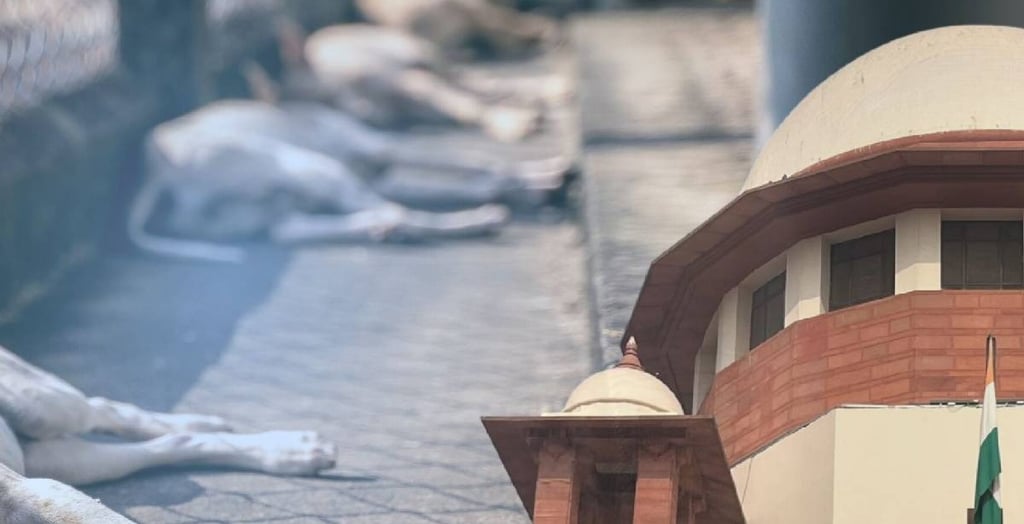Supreme Court’s stray dog order brings relief, Sikkim too must follow new rules
The Court also made it clear that rabid dogs or those showing aggressive behaviour must not be released back to the streets.
LOCAL


In a major decision that will have an impact across the country, including Sikkim, the Supreme Court on Friday modified its earlier order on stray dogs and said that dogs picked up from the streets must be released back after sterilisation and vaccination, except those which are rabid, suspected of rabies, or are aggressive.
The order came from a three-judge bench headed by Justice Vikram Nath along with Justice Sandeep Mehta and Justice NV Anjaria. The Court observed that keeping all sterilised and vaccinated dogs away from their localities was “too harsh” and against the rules. The judges said that once dogs are sterilised, dewormed, and immunised, they should be returned to the same place from where they were picked up.
The Court further ordered that feeding of stray dogs should not take place on streets or public places. Instead, each municipal ward has to create dedicated feeding areas. Notice boards will be put up in such areas to make sure people feed dogs only there. Anyone feeding dogs on roads against this rule may face action.
This ruling is not limited to Delhi-NCR. It has been extended to all states and Union Territories. That means Sikkim’s local bodies, animal husbandry department, and Gangtok Municipal Corporation will also have to follow these rules. The Court also directed that a helpline number must be started in each municipal area to report violations.
For Sikkim, where stray dogs are seen around MG Marg, Deorali, Ranipool, and many villages, this decision is important. Animal rights groups in Gangtok have often asked for better shelter facilities, while local residents have complained of dog bites and nuisance. With the Supreme Court’s latest direction, Sikkim authorities will now need to balance both sides—ensuring safety of the public and welfare of the animals.
The Court also made it clear that rabid dogs or those showing aggressive behaviour must not be released back to the streets. Instead, they should be sterilised, immunised, and kept in separate shelters. Municipal bodies have also been told to work quickly on creating dog shelters and pounds, which will also help in adoption drives.
Importantly, the Court warned that no individual or NGO should obstruct municipal authorities while carrying out this work. If anyone is found stopping officials, they can face prosecution for blocking public duty. It also directed that NGOs and individuals who approached the Court must deposit money—₹25,000 for individuals and ₹2 lakh for NGOs—so that the matter is not taken lightly.
For Sikkim, this means that the state government will soon have to identify feeding zones for stray dogs in Gangtok and other towns, set up shelters, and run sterilisation drives in a more organised way. Residents of Sikkim markets and colonies, who often face difficulties due to unregulated feeding of dogs, are likely to get relief. At the same time, animal lovers will still have the right to care for dogs, but only in the designated areas.
